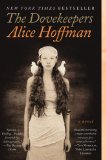Summary | Excerpt | Reading Guide | Reviews | Beyond the Book | Readalikes | Genres & Themes | Author Bio

A Novel
by Alice Hoffman
As for me, I expected disaster, nothing more. I had known its embrace before I had breath or sight. I was the second child, a year younger than my brother, Amram, but unlike him entirely, cursed by the burden of my first breath. My mother died before I was born. In that moment the map of my life arose upon my skin in a burst of red marks, speckles that, when followed, one to the other, have led me to my destiny.
I can remember the instant when I entered the world, the great calm that was suddenly broken, the heat of my own pulse beneath my skin. I was taken from my mother's womb, cut out with a sharp knife. I am convinced I heard my father's roar of grief, the only sound to break the terrible silence of one who is born from death. I myself did not cry or wail. People took note of that. The midwives whispered to one another, convinced I was either blessed or cursed. My silence was not my only unusual aspect, nor were the russet flecks that emerged upon my skin an hour after my birth. It was my hair, the deep bloodred color of it, a thick cap growing, as if I already knew this world and had been here before.
They said my eyes were open, the mark of one set apart. That was to be expected of a child born of a dead woman, for I was touched by Mal'ach ha-Mavet, the Angel of Death, before I was born in the month of Av, on the Tisha B'Av, the ninth day, under the sign of the lion. I always knew a lion would be waiting for me. I had dreamed of such creatures ever since I could remember. In my dreams I fed the lion from my hand. In return he took my whole hand into his mouth and ate me alive.
When I left childhood, I made certain to cover my head; even when I was in my father's courtyard I kept to myself. On those rare occasions when I accompanied our cook to the market, I saw other young women enjoying themselves and I was jealous of even the plainest among them. Their lives were full, whereas I could think only of all I did not have. They chirped merrily about their futures as brides as they lingered at the well or gathered in the Street of the Bakers surrounded by their mothers and aunts. I wanted to snap at them but said nothing. How could I speak of my envy when there were things I wanted even more than a husband or a child or a home of my own?
I wished for a night without dreams, a world without lions, a year without Av, that bitter, red month.
WE LEFT the city when the second Temple was set in ruins, venturing forth into the Valley of Thorns. For months the Romans had defiled the Temple, crucifying our people inside its sacred walls, stripping the gold from the entranceways and the porticoes. It was here that Jews from all over creation traveled to offer sacrifices before the holiest site, with thousands arriving at the time of the Feast of Unleavened Bread, all yearning to glimpse the gold walls of the dwelling place of God's word.
When the Romans attacked the third wall, our people were forced to flee from that part of the Temple. The legion then brought down the second wall. Still it was not enough. The great Titus, military leader of all Judea, went on to construct four siege ramps. Our people destroyed these, with fire and stones, but the Romans' assault of the Temple walls had weakened our defenses. Not long afterward a breach was accomplished. The soldiers entered the maze of walls that surrounded our holiest site, running like rats, their shields lifted high, their white tunics burning with blood. The holy Temple was being destroyed at their hands. Once this happened, the city would fall as well, it would be forced to follow, sinking to its knees like a common captive, for without the Temple there would be no lev ha-olam, no heart of the world, and nothing left to fight for.
The desire for Jerusalem was a fire that could not be quenched. There was a spark inside that holiest of holy places that made people want to possess it, and what men yearn for they often destroy. At night the walls that had been meant to last an eternity groaned and shook. The more the Romans arrested us for crimes against their rule the more we fought among ourselves, unable to decide upon a single course of action. Perhaps because we knew we couldn't win against their might we turned on each other, riven by petty jealousies, split apart by treachery, our lives a dark tangle of fear.
Excerpted from The Dovekeepers by Alice Hoffman. Copyright © 2011 by Alice Hoffman. Excerpted by permission of Scribner. All rights reserved. No part of this excerpt may be reproduced or reprinted without permission in writing from the publisher.
The fact of knowing how to read is nothing, the whole point is knowing what to read.
Click Here to find out who said this, as well as discovering other famous literary quotes!
Your guide toexceptional books
BookBrowse seeks out and recommends the best in contemporary fiction and nonfiction—books that not only engage and entertain but also deepen our understanding of ourselves and the world around us.